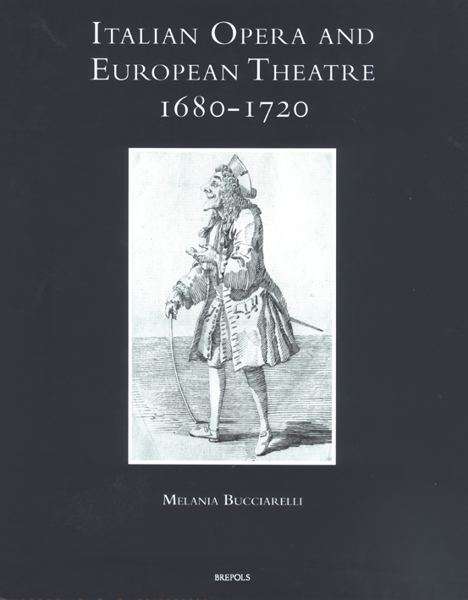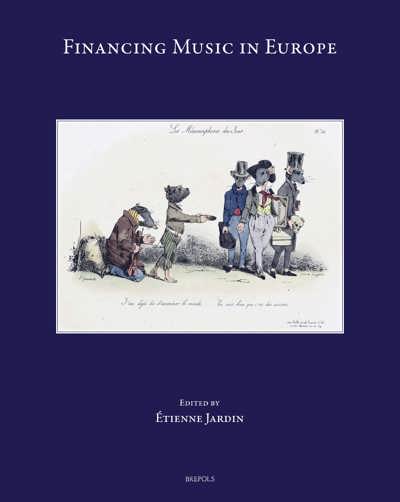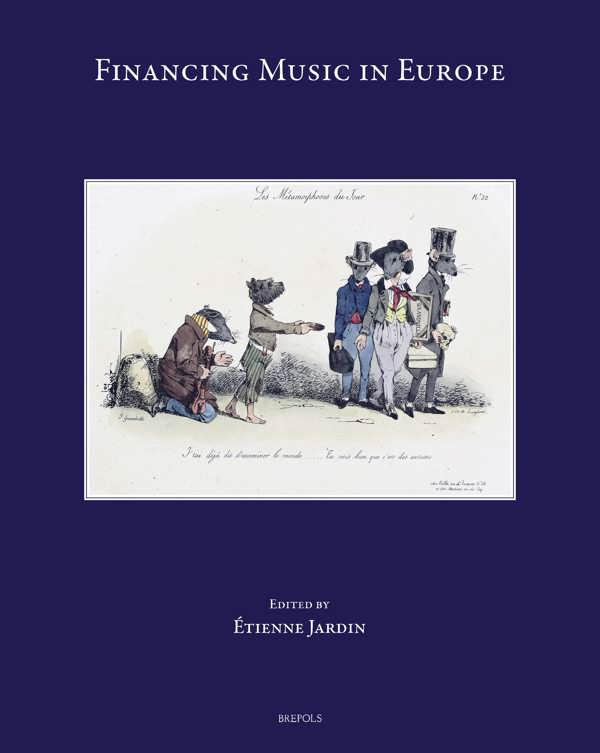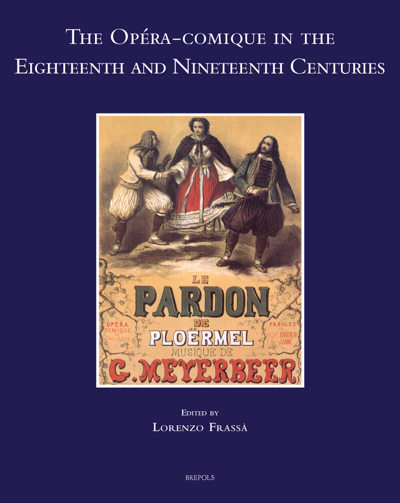
Financing Music in Europe
Etienne Jardin (ed)
- Pages: xii + 452 p.
- Size:210 x 270 mm
- Illustrations:22 b/w
- Language(s):English, French, Italian
- Publication Year:2022
- € 125,00 EXCL. VAT RETAIL PRICE
- ISBN: 978-2-503-60289-9
- Hardback
- Available
This book investigates the various aspects of financing the European music world
“Financing Music in Europe represents a significant milestone in challenging traditional musicological approaches with pragmatic methodologies. This work foreshadows a wealth of future research that will enhance our understanding of how economic and career considerations influenced music composition, production, performance, and reception across Europe.” (François Delécluse, in Ad Parnassum, XXI/41, 2023, p. 96)
Étienne Jardin is director of research and publications of the Palazzetto Bru Zane – Centre de musique romantique française (Venice). He obtained a Ph. D. in history from the École des hautes études en sciences sociales (Paris) and his research concerns musical life in France from the end of the eighteenth century to the early twentieth. His last book is entitled «Exposer la musique. Le festival du Trocadéro» (Horizons d’attende, 2022).
The way in which music was financed from the 18th to the early 20th centuries has usually been depicted as a slow transition from private investment (or patronage) to more public forms of financial support. In particular, the later 18th and earlier 19th centuries marked fundamental changes in European life with the development of new technologies and expanding market economies. Composers and musicians, no longer bound by service to a court or a patron, were fully integrated into the musical market, and new categories emerged, such as theatre impresarios and the artistic agent. During the second half of the 19th century, the concept of a career as a concert musician began to take shape concurrently with the second Industrial Revolution. This book investigates the various aspects of financing the music world — in court, on lyrical stages, for concerts, or even music schools — and ask the question: did the provenance of funding and the funder’s identity have an impact on music itself?
Étienne Jardin
Preface
Economic Models
Berthold Over
Music in the Court Budget: The Example of the Bavarian Court in Munich (1570-1802)
Morton Wan
Handel’s Financial Sublime: Sounding the South Sea Bubble of 1720
Sean Reilly
The New-German School and the ‘Retreat to the Court’: Reconciling Conflicts between Claims of Autonomy and Reliance on Noble Patronage in the Early Years of the Allgemeiner Deutscher Musikverein (1859-1868)
Rémy Campos
Donner un concert: les formes de la libéralité dans les salons parisiens (1870-1914)
Katharine Ellis
Broke: Tales from the French Opera Industry
Anna Wright
The Funding of Conservatoires in Late Nineteenth-Century England
Eighteenth-Century Opera
Mirijam Beier
How to Finance a Singer's Life and Career in the Italian Opera Business of the Eighteenth Century
Eric Boaro
Gambling as a Source of Opera Funding: The Case of the Regio Ducal Teatro of Milan (1717-1776)
Davide Mingozzi
«Non sarà lecito a chiunque di aprire teatri in città»: l’impresa dei teatri a Genova (1772-1773)
Maxime Margollé
L’économie de l'opéra-comique à la fin du XVIIIe siècle (1783-1801)
Across Borders
Jeroen van Gessel
Money as the Missing Link: Interpreting Cultural Politics in the Strasbourg Opera (1870-1918) through the Lens of Finance
Megan Estela
Maurice Grau et l’âge d’or du Metropolitan Opera
Jules Cavalié
The 'Saison Italienne' at the Théâtre du Châtelet in Paris in May and June 1910: The Development of a Branded Product, between Public Institutional Model and Private International Entrepreneurship
Gabriele Slizyte
Propagande diplomatique, management et financement des artistes: le rôle de l’Association française d’action artistique dans la carrière américaine des musiciens français au début du xxe siècle
Concerts
María Encina Cortizo-Ramón Sobrino
Musicians as Entrepreneurs: Private Music Societies in Crisis Times in Spain (1868-1874)
Simon McVeigh
Piano Manufacturers and Concert Promotion in Edwardian London: New Light on the Broadwood Concerts (1902-1912)
Kristin Van den Buys
Financing Modernist Music: The Rise, Climax and Decline (1920-1936) of Modernist Music in Commercial Concert Societies in Brussels and Its Revival (1936-1940) at the Fully Subsidized National Radio Belgian Broadcasting Institute
Chris Marshall
Calling the Tune: A Commissioning Fund for the BBC Proms, 1960-1985
Editions
César Leal
Music Publications: Artifacts and Instruments of the Music Industry
Haiganuș Preda-Schimek
Creative and Economic Networks: A Case Study in Romanian Folk Music Published in Vienna around 1850
Abstracts and Biographies
Index of Names




